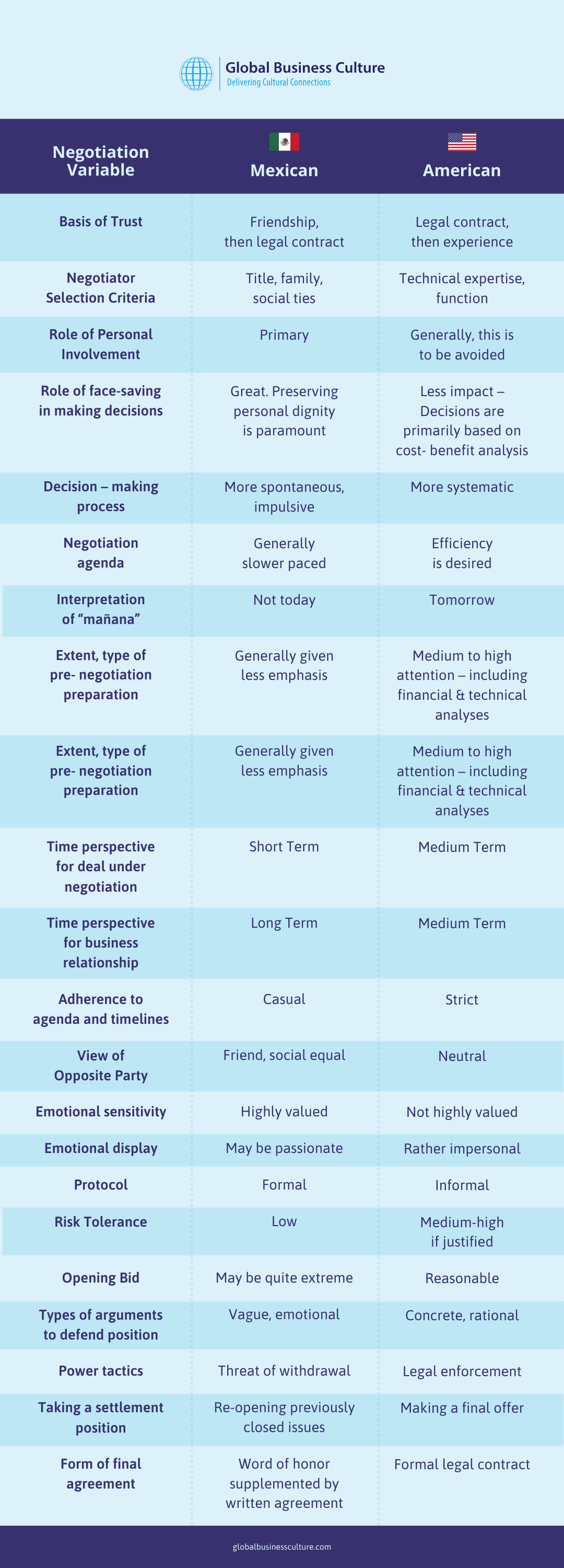Select Language |
Published December 3, 2024
Read Time
Published December 3, 2024
Read Time
As with any international negotiation, cultural differences will play a big part in the outcome. For Mexico negotiation culture, particularly in the case of discussions between the U.S. and Mexico, we’ve put together a useful guide which informs you about each country’s broad perspective about specific negotiation topics.
As you’ll see, each party can have quite different views, so it’s important to consider these points carefully. But not all effort should be put into memorising this table. Although we recommend familiarising yourself with this guide, remember that Mexican business associates will also place considerable weight on the personal relationship you have with each other, so make sure to devote a decent amount of time to that as well.
As a general rule of thumb, American businesspeople should understand that patience is key.
In Mexico, time is not money; money is for enjoying life. As a result, things may not happen as quickly as their US counterparts would like. Mexican colleagues are not inclined to progress in a straight line through the issues, meaning that even previously agreed items may be brought up again for further discussion. And lastly, please keep in mind that these are general characteristics, and you should not assume that all Mexicans will follow the pattern.

In conclusion, navigating business negotiations between the US and Mexico requires a keen understanding of cultural nuances and a dedication to building strong personal relationships.
While this guide provides valuable insights into Mexico negotiation culture and the variables involved, remember that the human connection is equally vital. By embracing patience and flexibility, American businesspeople can build more meaningful and successful interactions with their Mexican counterparts.
© Copyright 2025 Global Business Culture. All rights reserved | Legal Notices